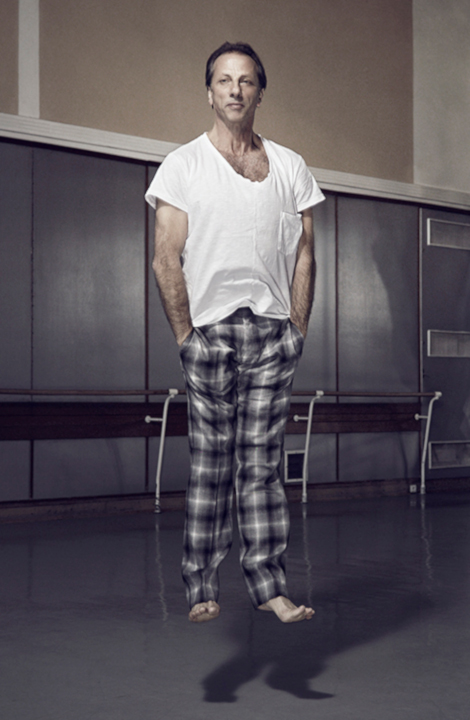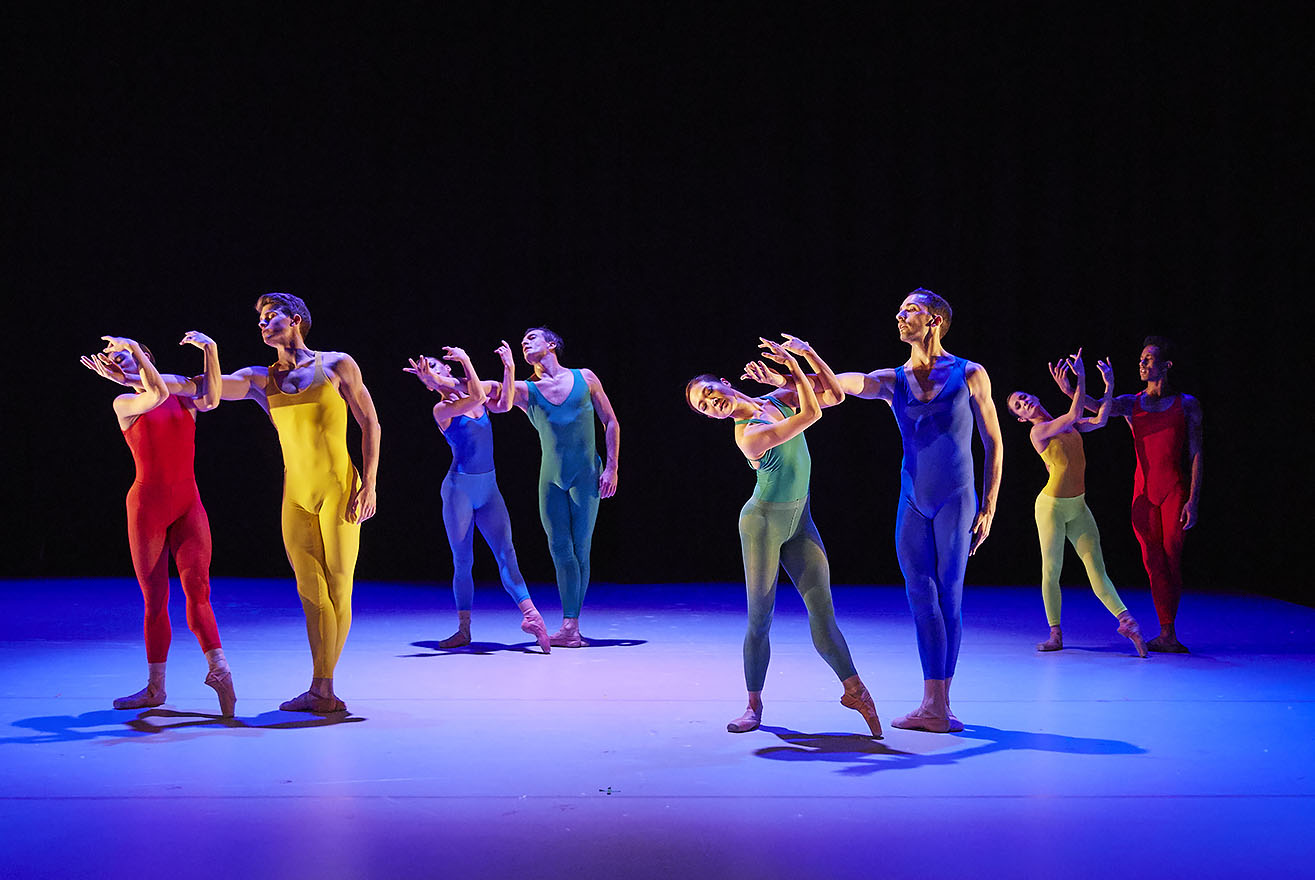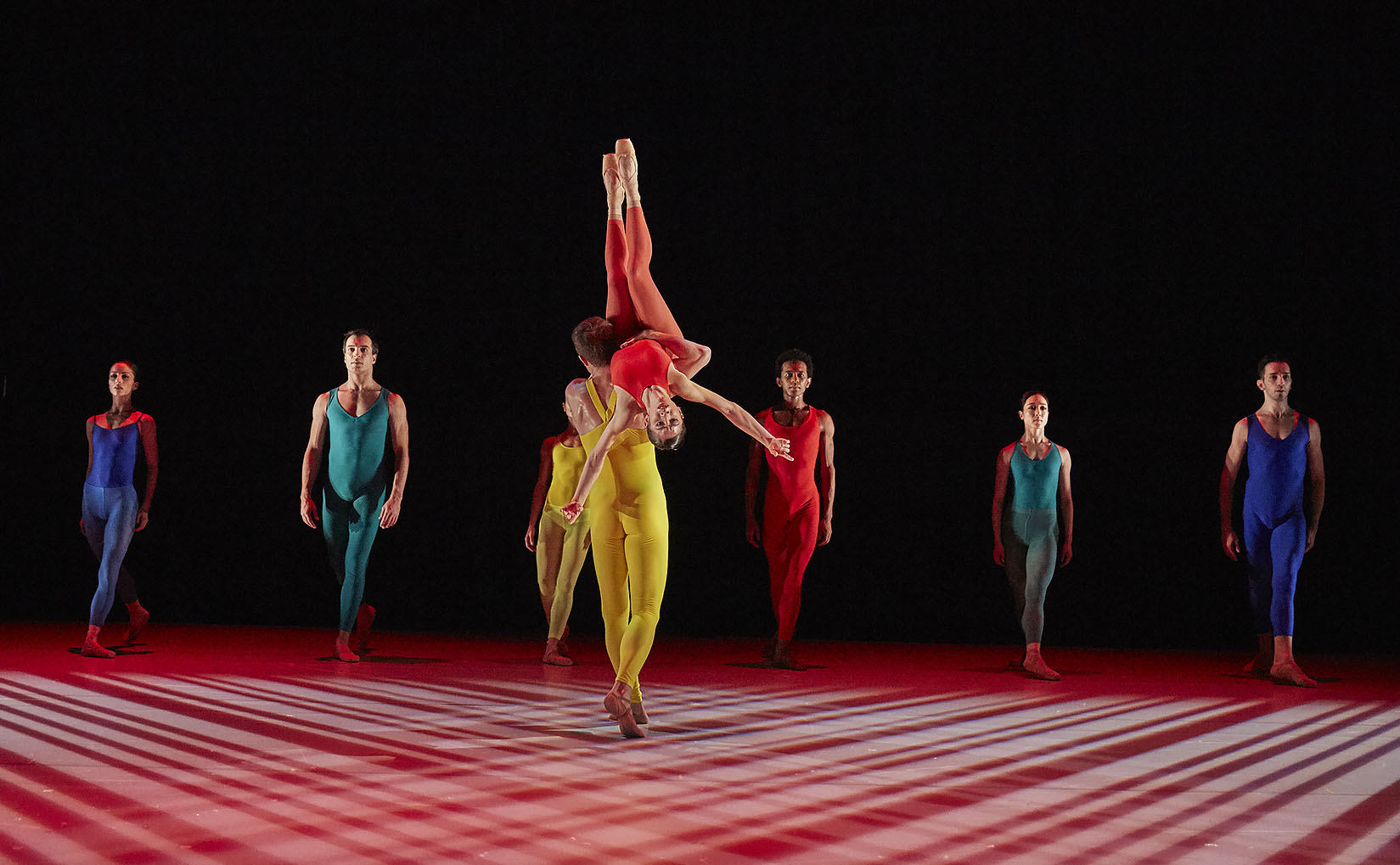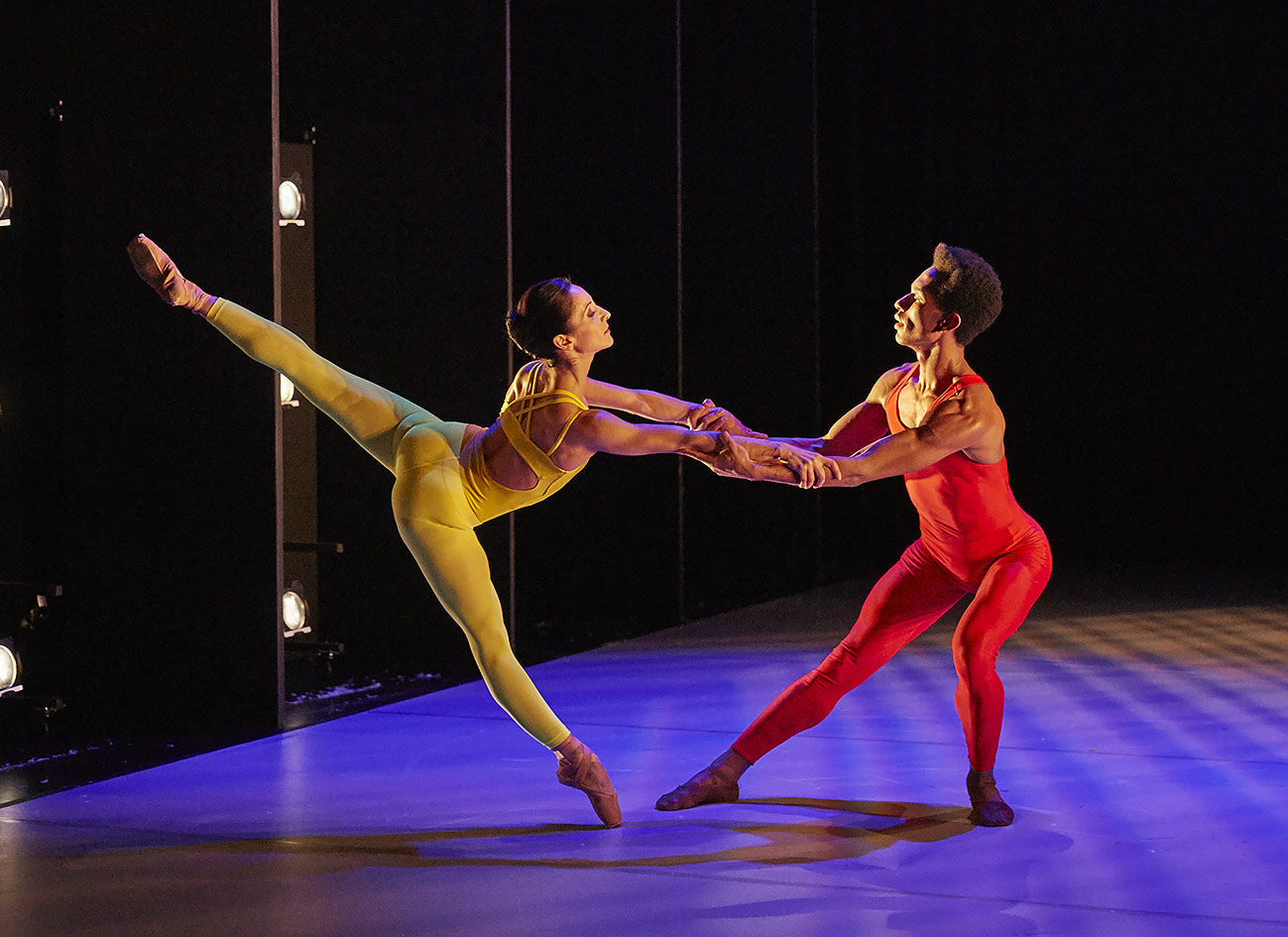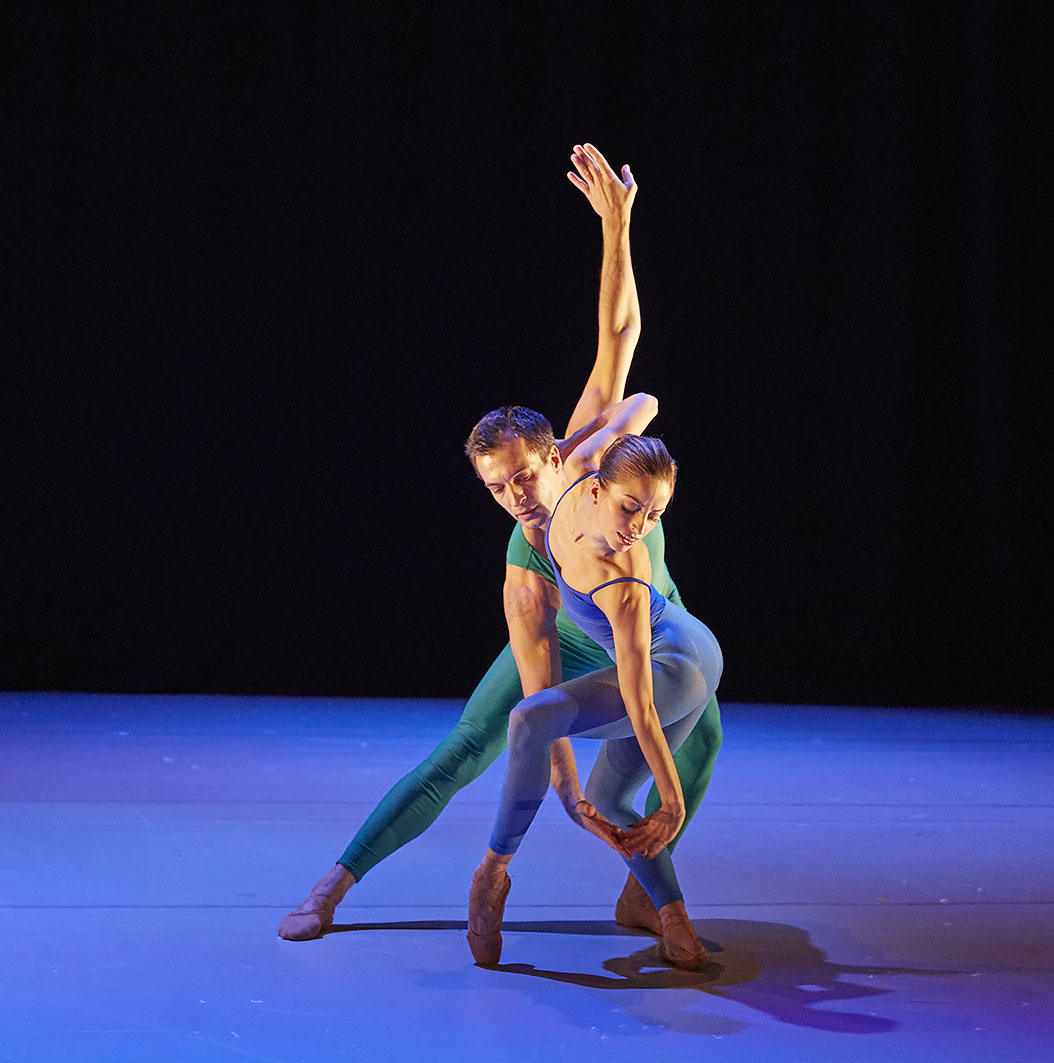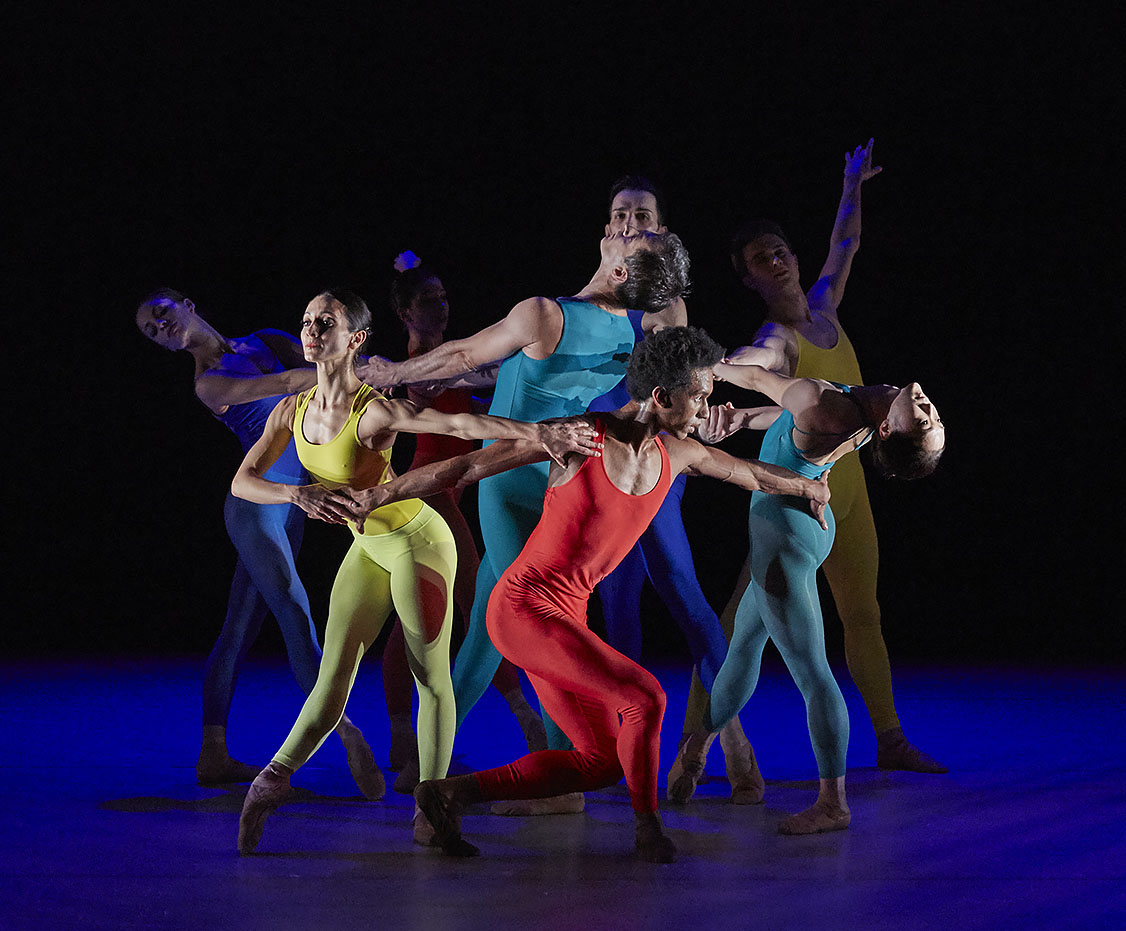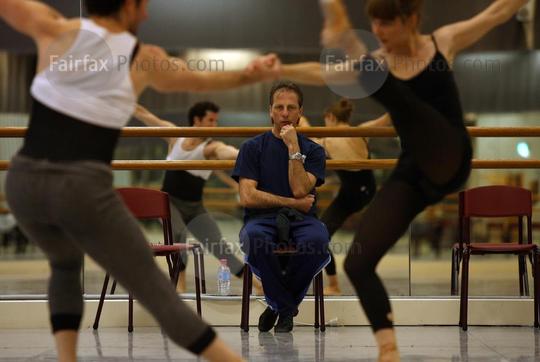
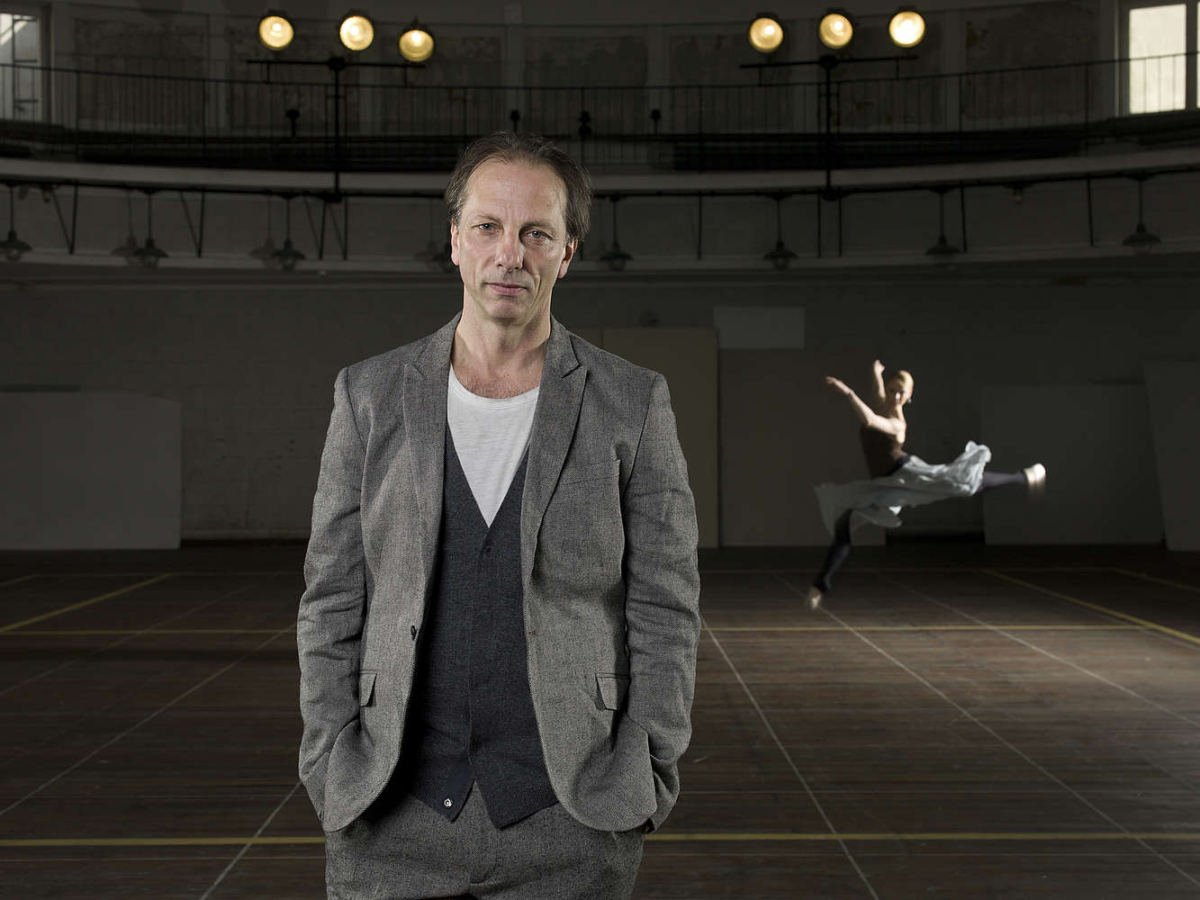
Krzysztof Pastor
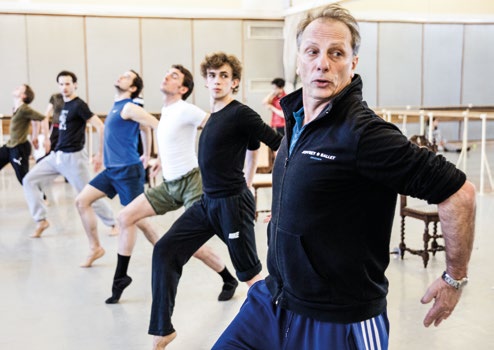
Choreographer, Producer, and Director
Mr. Pastor began his ballet training with the Ballet School in his hometown of Gdańsk. After his training, he joined the Polish Dance Theatre in Poznań (1975) where he worked with Conrad Drzewiecki, winning the position of one of the company’s leading young artistic personalities. Four years later, he moved to the Teatr Wielki of Łódź.
In 1983 Pastor became a soloist with Le Ballet de l’Opéra of Lyon in France, dancing ballets by Gray Veredon, Hans van Manen, Kurt Jooss and others. From 1985 to 1995, he danced with the Dutch National Ballet (Het Nationale Ballet), working with many well-known choreographers such as Carolyn Carlson, Nils Christie, Nacho Duato, Rudi van Dantzig, Jan Linkens, Eduard Lock, Hans van Manen, Maguy Marin, Toer van Schayk, Nina Wiener, and Peter Wright. He danced major roles in both classical and neoclassical ballets, as well as modern dance works.
Pastor completed his first choreographic work in 1986 for an international gala performance in Łódź. After creating several ballets for the Dutch National Ballet’s workshop programmes, in 1992 he was asked to choreograph a ballet for the company’s main programme: the successful Shostakovich – Chamber Symphony. He worked as a freelance choreographer from 1995. In the 1997/98 season, he joined the Washington Ballet as its choreographer in residence and became the Dutch National Ballet’s choreographer in residence in the 1998/99 season. Pastor has since gained considerable recognition as an international choreographer, creating nearly seventy ballets to date, including the highly acclaimed Do Not Go Gentle…, and In Light and Shadow; and the large-scale, full-length productions: Kurt Weill, Acid City, Don Giovanni, Tristan, and Dangerous Liaisons; as well as Symphonie fantastique for the Australian Ballet.
In 1995 Pastor’s duet Detail IV won the Gold Choreography Award of the Helsinki International Ballet Competition. In 2000 he was awarded the Medal of 200 Years of Polish Ballet by the Ministry of Culture in Poland, and the Dancers Fund ‘79 Choreography Prize in the Netherlands. His works: Do Not Go Gentle… (2000) and Kurt Weill (2001) were hailed in the Netherlands as great artistic events of those seasons and presented as such at the Dutch Days of Dance. In 2001, his ambitious and challenging production Kurt Weill was also nominated at the Bolshoi Theatre (Moscow) for the prestigious international Benois de la Danse Prize in no less than three categories.
In January 2003, Krzysztof Pastor was appointed resident choreographer of the Dutch National Ballet, sharing the position with Hans van Manen. In Amsterdam, he created Si después de morir, Voice – premiered at the Holland Festival in 2004, Don Giovanni, as well as Crossing Paths, Suite for Two, and Visions at Dusk. In December 2007 he was invited by the Bolshoi Ballet in Moscow to work with the Bolshoi’s star Svetlana Zakharova (duet from Tristan and solo from Voice). In May 2008 in Edinburgh with the Scottish Ballet, Pastor premiered his own original, cutting-edge version of Prokofiev’s Romeo and Juliet, and his pieces Moving Rooms (2008) and Scheherazade (2009) were specially prepared for the Holland Festival premiered with the Dutch National Ballet. His latest works in Amsterdam were Dumbarton Dances (2009) and Nijinsky – Dancer, Clown, God(2010).
Alongside his work for the Dutch National Ballet, Pastor has created ballets for many companies in other countries, such as the Royal Swedish Ballet, Bolshoi Ballet in Moscow, Scottish Ballet, Washington Ballet, Ballet Opera Dresden, Israel Ballet, Royal Ballet Flanders, Ballet of the Polish National Opera in Warsaw (Górecki’s Third Symphony, 1994), Lithuanian National Ballet, Latvian National Ballet, Donau Ballet, Hungarian National Ballet, National Theatre in Brno, Ankara State Ballet, The Australian Ballet, West Australian Ballet, Royal New Zealand Ballet, and Hong Kong Ballet. He has also choreographed smaller pieces, especially for selected ballet soloists.
His works have featured in the programmes of renowned festivals: Holland Festival, Holland Dance Festival, and Edinburgh Festival, and also at international ballet competitions, to great critical and audience acclaim. His choreographic works have been presented by Het Nationale Ballet during the company’s tours of the Netherlands, France, Canada, and Britain. In 2008 the Australian Ballet brought his Symphonie fantastique to its prestigious guest performances in Paris. He has also been invited to be a judge at the International Choreography Competition in Groningen, the Eurovision Young Dancers competition in Warsaw, the New York International Ballet Competition, the Benois de la Danse Prize (the ‘ballet Oscar’), the International Ballet Festival Dance Open in Saint Petersburg, and the Polish National Dance Competition in Gdańsk.
After years of artistic absence from Poland, Krzysztof Pastor was invited by the Teatr Wielki – Polish National Opera in Warsaw to stage his Tristanto the music of Richard Wagner. Following the choreographer’s first visits to Warsaw, the theatre’s general director Waldemar Dąbrowski asked Pastor to accept the position of director of the Polish National Opera’s ballet company, with the aim of giving the company artistic independence and elevating its position at the Teatr Wielki to that of the Polish National Ballet. Pastor took up his new post on 18 March 2009 while retaining his duties as resident choreographer of Het Nationale Ballet in Amsterdam until June 2017. From the moment he took the position of the Polish National Ballet’s director he staged in Warsaw his earlier ballets: Kurt Weill (2009), In Light and Shadow (2010), Moving Rooms (2012), Romeo and Juliet (2014), The Tempest and Bolero (2016) and also some new works created especially for PNB: And the Rain Will Pass… (2011), Adagio&Scherzo (2014), Casanova in Warsaw (2015), his own original version of Swan Lake (2017) and Chopin’s Concerto in F minor (2018).
Krzysztof Pastor took on the additional duties of artistic director of ballet at the Lithuanian National Opera and Ballet Theatre in Vilnius as of 10 October 2011. Impressed by the achievements of the Polish National Ballet, Gintautas Kėvišas – the general director of the Lithuanian National Theatre, asked the choreographer to breathe new artistic life into the Vilnius ballet company.
Pastor received special prizes from the Polish Minister of Culture and National Heritage, Polish Theatre Artists Union and Polish Society of Authors and Composers and was awarded the Officer’s Cross of the Order of Polonia Restituta, the ‘Merit to Culture – Gloria Artis’ Gold Medal and Honorary Golden Star from Lithuanian Ministry of Culture. In 2017, he was awarded the title of an ‘Outstanding Pole’ from Polish Promotional Emblem Foundation ‘Teraz Polska’.
Presenting a small Gallery of images from the various works of Mr. Pastor…
Choreographic Works:
1992: Shostakovich Chamber Symphony (Dutch National Ballet)
1993: Les Biches (The Israel Ballet)
1993: Stop It! (Dutch National Ballet; staged also at: The Washington Ballet, 1998)
1994: Symphony No. 3 by Górecki (Ballet of the Teatr Wielki – Polish National Opera; staged also at: Dutch National Ballet, 1996)
1995: Don’t Look Back… (DonauBallet)
1996: Firebird (Royal New Zealand Ballet; staged also at: West Australian Ballet, 1999)
1997: Piano Concerto by Gershwin (The Israel Ballet; staged also at: The Washington Ballet, 1997)
1997: Altri canti d’Amor (Teatro Massimo in Palermo)
1997: Carmen (Lithuanian National Ballet; staged also at: Latvian National Ballet, 2001; Hungarian Dance Academy, 2002)
1998: Passing By (The Washington Ballet)
1998: A Midsummer Night’s Dream (Lithuanian National Ballet)
1999: Bitter-Sweet (Dutch National Ballet)
1999: Sonata by Brahms (The Washington Ballet)
1999: Hin- und hergerissen (Semperoper Ballett)
2000: Do Not Go Gentle… (Dutch National Ballet)
2000: The Silver Vail (Latvian National Ballet)
2000: In Light and Shadow (Dutch National Ballet; staged also at: Royal Swedish Ballet, 2003; Scottish Ballet, 2006; Ankara State Opera and Ballet, 2007; Hong Kong Ballet, 2010; Polish National Ballet, 2010)
2001: The Rite of Spring (Latvian National Ballet)
2001: Kurt Weill (Dutch National Ballet; staged also at: Polish National Ballet, 2009)
2001: Bach Divisions (The Israel Ballet)
2002: Tao (Dutch National Ballet)
2002: Acid City (Lithuanian National Ballet)
2002: Encounters (Royal Ballet of Flanders)
2003: Si después de morir… (Dutch National Ballet)
2004: Opium (Dutch National Ballet)
2004: Voice (Dutch National Ballet)
2005: Don Giovanni (Dutch National Ballet)
2006: Tristan (Royal Swedish Ballet; staged also at: Polish National Ballet, 2009; Lithuanian National Ballet, 2012)
2006: Dangerous Liaisons (Latvian National Ballet; staged also at: Poznań Grand Theatre, 2010, National Theatre in Brno, 2011)
2006: Crossing Paths (Dutch National Ballet)
2006: Suite for Two (Dutch National Ballet)
2007: Visions at Dusk (Dutch National Ballet)
2007: Symphonie fantastique (The Australian Ballet)
2008: Romeo and Juliet (Scottish Ballet; staged also at: Polish National Ballet, 2014; Joffrey Ballet, 2014; Lithuanian National Ballet, 2016)
2008: Moving Rooms (Dutch National Ballet; staged also at: Polish National Ballet, 2012)
2009: Chopin Dances (The Israel Ballet)
2009: Scheherazade (Dutch National Ballet)
2009: Dumbarton Dances (Dutch National Ballet)
2010: Nijinsky – Dancer, Clown, God (Dutch National Ballet)
2011: And the Rain Will Pass… (Polish National Ballet)
2012: Chapters (Dutch National Ballet)
2012: Bolero (Dutch National Ballet; staged also at: Lithuanian National Ballet, 2015; Latvian National Ballet, 2015; Polish National Ballet, 2016)
2014: Adagio & Scherzo (Polish National Ballet; staged also at: Theater Augsburg, 2016)
2014: The Tempest (Dutch National Ballet; staged also at: Polish National Ballet, 2016)
2014: The Nutcracker (Lithuanian National Ballet)
2015: Casanova in Warsaw (Polish National Ballet)
2017: Swan Lake with new libretto (Polish National Ballet)
2018: Dracula (West Australian Ballet)
2018: The Miraculous Mandarin (Lithuanian National Ballet)
2018: Concerto in F minor by Chopin (Polish National Ballet)
Choreographic Prizes and Awards:
1995: Gold Choreography Prize, International Ballet Competition in Helsinki (Finland)
2000: Medal of 200 Years of Polish Ballet from the Ministry of Culture (Poland)
2000: Choreography Prize, Dansersfonds ‘79 (the Netherlands)
2010: Terpsychora (Terpsichore) Award from ZASP (Polish Performing Artists Union)
2011: Golden Gloria Artis Medal (Poland)
2014: Prize of the Minister of Culture and National Heritage (Poland)
2015: Officer’s Cross of the Polonia Restituta Order
2016: Association of Authors and Composers (ZAIKS) Award for choreographic achievements (Poland)
2016: Honorary Golden Star of the Ministry of Culture of the Republic of Lithuania
2017: Statuette and a tittle of an „Outstanding Pole” from Polish Promotional Emblem Foundation “Teraz Polska”
